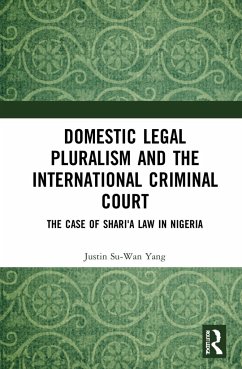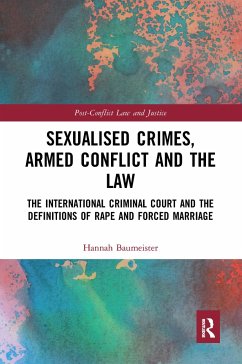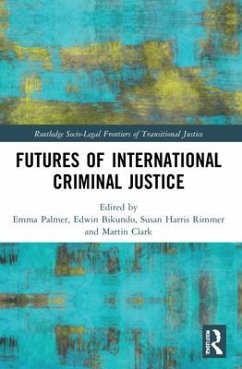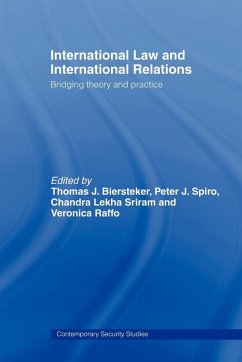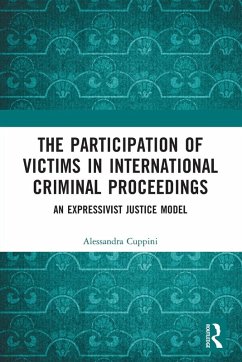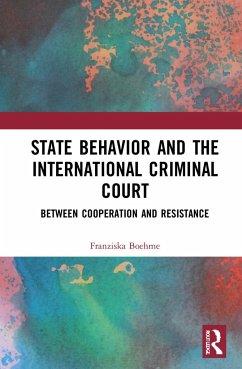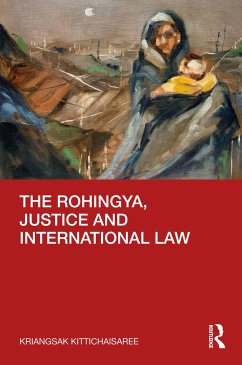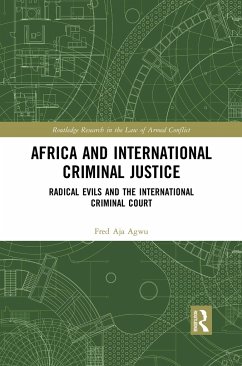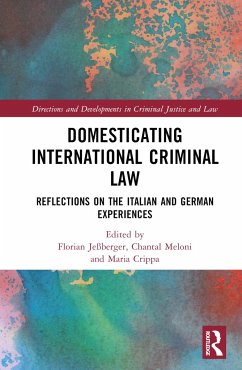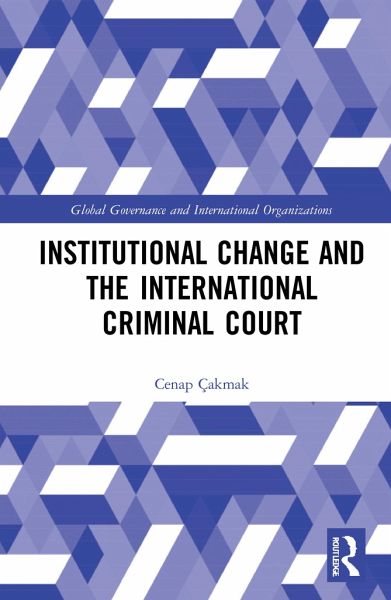
Institutional Change and the International Criminal Court
Versandkostenfrei!
Versandfertig in 6-10 Tagen
45,99 €
inkl. MwSt.
Weitere Ausgaben:

PAYBACK Punkte
23 °P sammeln!
This book explores the dynamics and trajectories of change in international politics through an English School analysis of primary institutions including international law, sovereignty and diplomacy, with particular reference to the creation of the International Criminal Court (ICC).The study argues that it serves as an important indicator and model for redefining international politics, particularly through its impact upon three major institutions as prescribed by the English School: international law, sovereignty and diplomacy. The author explores three major areas: the ICC's contribution to...
This book explores the dynamics and trajectories of change in international politics through an English School analysis of primary institutions including international law, sovereignty and diplomacy, with particular reference to the creation of the International Criminal Court (ICC).
The study argues that it serves as an important indicator and model for redefining international politics, particularly through its impact upon three major institutions as prescribed by the English School: international law, sovereignty and diplomacy. The author explores three major areas: the ICC's contribution to the consolidation of the individual as a subject of the international law; the significance of the Court and its jurisdiction in terms of the state sovereignty; and the strong and determinative role of non-state actors active on global level during the diplomatic process upheld for the making of the norms and rules during the creation of the ICC. These three fields of change, point out to the redefinition and reconstruction of international politics, heralding a solidarist vision of international society.
The book will be of particular interest to researchers in the field of the IR, as well as graduate students interested in IR theory, international law, and international organizations.
The study argues that it serves as an important indicator and model for redefining international politics, particularly through its impact upon three major institutions as prescribed by the English School: international law, sovereignty and diplomacy. The author explores three major areas: the ICC's contribution to the consolidation of the individual as a subject of the international law; the significance of the Court and its jurisdiction in terms of the state sovereignty; and the strong and determinative role of non-state actors active on global level during the diplomatic process upheld for the making of the norms and rules during the creation of the ICC. These three fields of change, point out to the redefinition and reconstruction of international politics, heralding a solidarist vision of international society.
The book will be of particular interest to researchers in the field of the IR, as well as graduate students interested in IR theory, international law, and international organizations.





